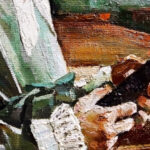Deadwood, arguably the greatest television series ever made, was a western, or possibly a morality epic, or maybe a social parable, that was very nearly set instead in ancient Rome and very much was delivered in an ornate, high-low dialect located somewhere between Shakespeare, the Bible, and a back alley brawl. That’s all to say, it was difficult to classify. Was it really a western? Was it an ode to the works of Joseph Conrad? I’ve always thought of Deadwood as noir: a world defined by crime, rendered with style, and awash in the kind of spirituality that’s afraid all this striving may (or may not) be in vain.
In fact, the crimes themselves seem to me the key to understanding Deadwood, or its sprawling plot anyway. Following a wait of over a dozen years, after the season was abruptly canceled in 2006, the powers-that-be at HBO have finally seen fit to give David Milch and the gang a proper sendoff by way of a feature-length movie picking up 10 years after the final events of Deadwood the series. That fateful coda is now upon us: set for a May 31st premiere on HBO. In order to brush up on the Deadwood particulars, I thought the best primer might be a quick review of the many, many crimes undertaken by the show’s characters, as well as a few unseen forces. (There were too many crimes to count, frankly. These are the 10 that strike me as most memorable / pivotal.) So go ahead, dust off your Deadwood felonies, judge the townsfolk by their sins, and get yourself ready for one more epic visit to the Black Hills camp. And tell Johnny to open some peaches.
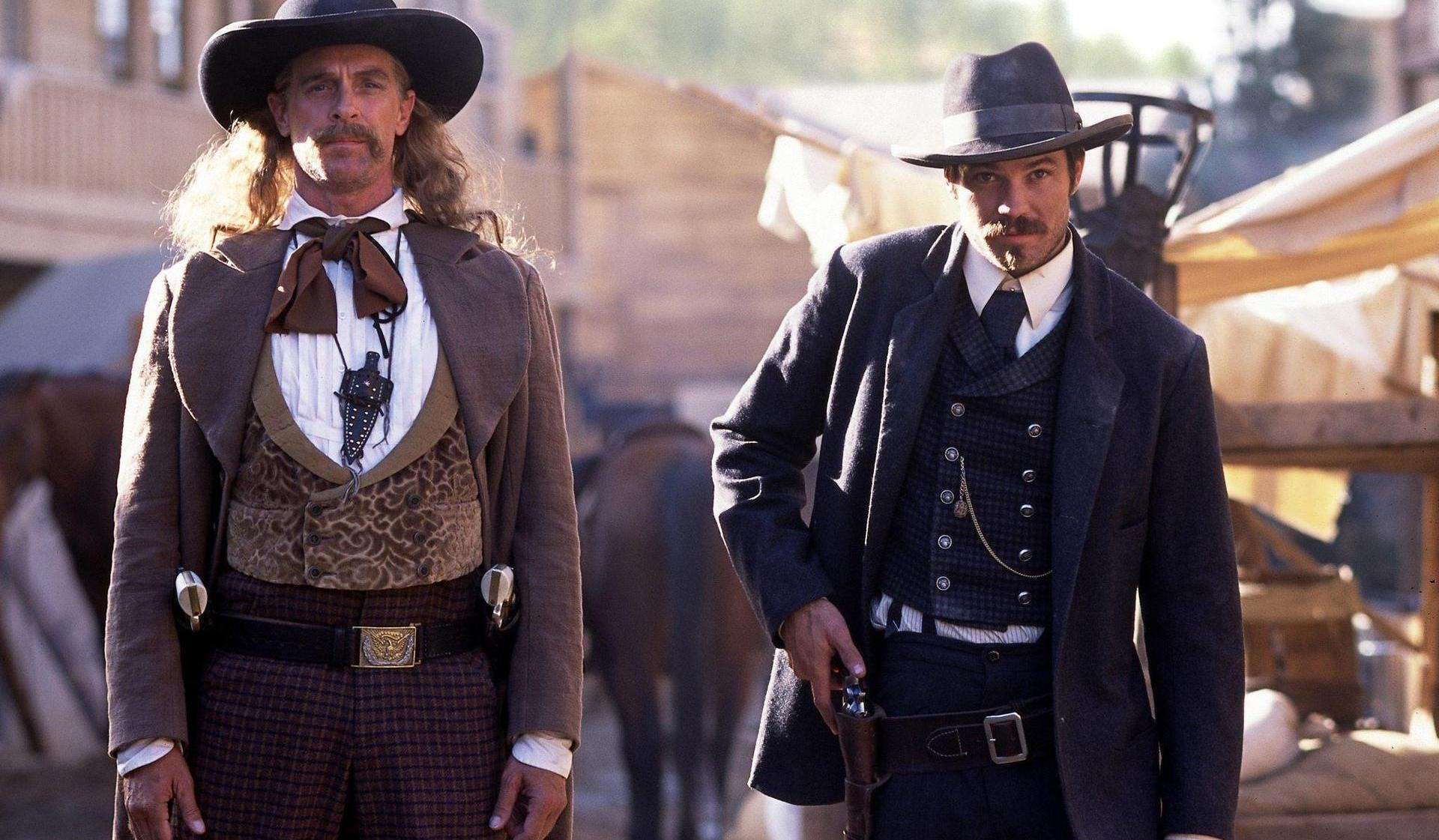
The Robbery and Murder of the Metz Family En Route to Minnesota
(Perpetrators: Road Agents Disguised as Indians)
The Metz slaying is arguably the seminal crime of Deadwood (the series), launching dozens of others heinous endeavors, but also acts of great kindness and even generosity. The Metzes are Scandinavian immigrants, one family among the many populating the American frontiers and prairies during the era. After deciding they’ve had enough of camp life, they’re heading back to the old Minnesota farm. Unfortunately, they’re tracked, robbed, and murdered by road agents who disguise their bloody work as the crimes of Indians. Word about the murder spreads through the camp, and Seth Bullock, Wild Bill Hickok and others decide to form a posse to ride out to the scene, a development that disturbs local saloon keeper and kingpin Al Swearingen, who oversees criminal activity in the area and never would have authorized the cruel, cockamamy scheme but now finds himself responsible for cleaning up the mess and avoiding a calamity. The murder brings together Deadwood newcomers Bullock and Hickok, two men with a sense of justice at war with their own faults and demons, and aligns them against Swearingen, who’s convinced they’re working against him. It’s a grisly crime and a chaotic start to the show’s events. The Metz daughter, Sophia, survives and is brought back to camp, protected against Swearingen and his cutthroats, and eventually adopted by the widow Garret.
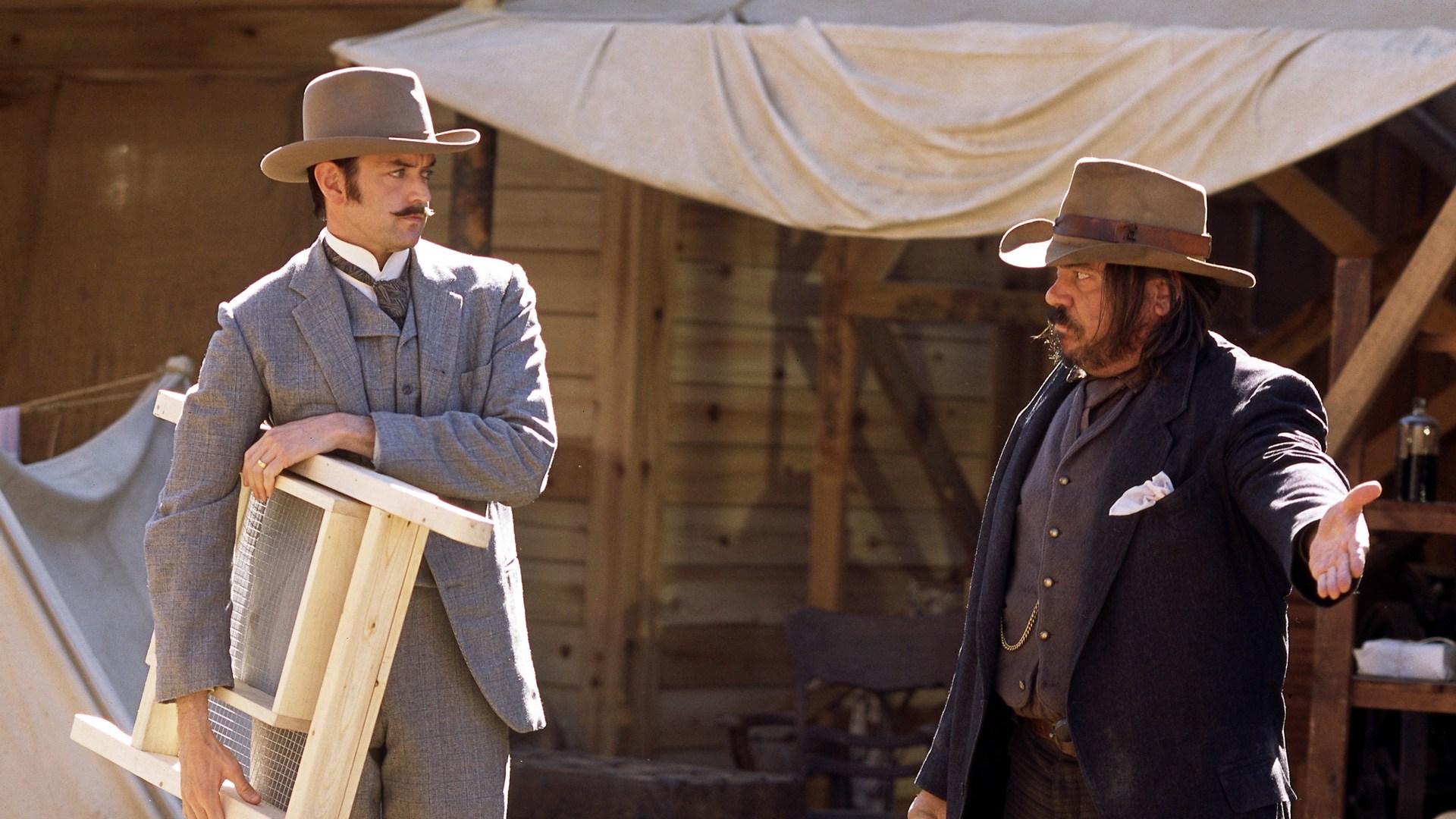
The Defrauding of Brom Garret and Subsequently His Killing
(Perpetrators: Al Swearingen, Dan Dorrity, E.B. Farnum, Al’s Irishman)
The railroading of the eastern scion Brom Garrett is one of Deadwood’s most powerful early plot engines. Garret is in camp with his wife, Alma, looking for adventure and a taste of the west courtesy. Persuaded that he’s on the inside of a deal to buy a promising gold claim from a motivated buyer, Garret is actually saddled with a would-be lemon. When he finally sniffs out the con, his wife urges him to chalk it up to adventure, but he drops hints around town that he’ll get the Pinkertons involved, which forces the hand of the man behind the scam, Al Swearingen (with some help from his right-hand henchman, Dan Dorrity and the innkeeper, E.B. Farnum, who posed as a competitive bidder). Garrett is eventually killed at the site of the claim, but by the twisted hand of fate it turns out he was in possession of a bonanza, a fortune-maker that passes to his widow, Alma, who seeks the protection of Hickock and then Bullock against the plots of Swearingen and company, and ultimately becomes the town’s great banker and benefactress. At the origins of her massive fortune, like most others, is some bloody business—Balzac’s old maxim is nowhere stronger than in the world of Deadwood.

The Murder of Wild Bill Hickok by the Coward Jack McCall
(Perpetrators: The Coward Jack McCall)
The legendary gunslinger and lawman Hickok was in Deadwood to try out prospecting, supposedly; mostly he was there to play cards. There was no great conspiracy behind this crime, just a loud-mouth crooked nosed gambler named Jack McCall who sat across the table from Hickok and could no longer bear the great man’s disdain. After Hickok magnanimously left McCall money for his breakfast following a night of poker, McCall stewed on the gesture, decided it was an insult, and came back to the site of their game (Tom Nuttall’s #10 saloon) to shoot Hickok dead. McCall is apprehended, acquitted in a bogus trial, and eventually tracked, captured and brought to Yankton by Bullock and Hickok’s old companion, Charlie Utter. Hickok’s death is depicted early in the series and while it may not have lasting consequences for the town, it solidifies several key friendships and alliances, especially for Bullock, a man not easily given to building such relationships.
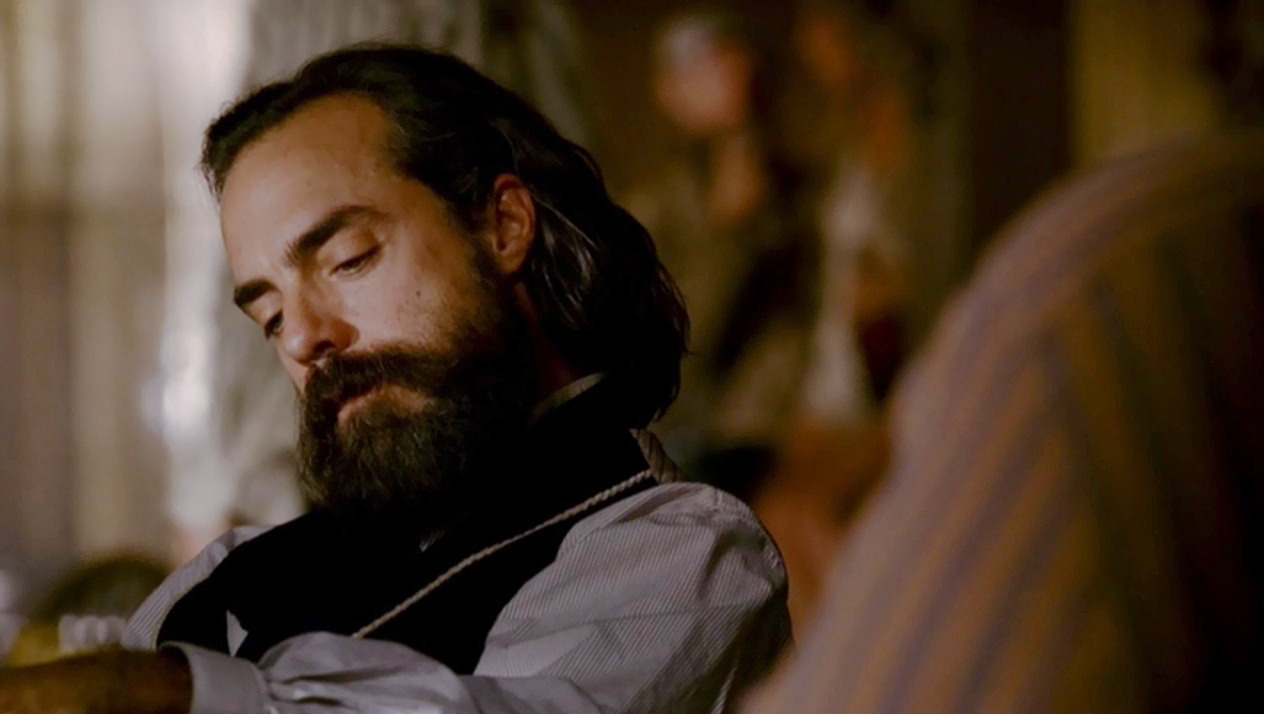
The Murder of Magistrate Clagett by His Former Bag Man Silas Adams
(Perpetrators: Magistrate Clagett, Who Signed and Sealed His Own Fate)
One of the most persistent and compelling questions in Deadwood is whether the territory will be annexed, by whom, and if it is annexed, will gold claims be honored? That means Yankton, the hub of the Dakotas, is the nearest political power, and the players in Yankton are eager to cash in, whatever happens to the camp. Clagett is Yankton’s man, and he comes periodically to town with his “toll collector” to gather up bribes from Deadwood’s municipal leaders to make sure the winds blow the right way in Yankton. But part of going legitimate is, for Al Swearingen, making sure that his outstanding murder warrant from Chicago doesn’t prevent him from building his fortune in a bona fide Deadwood. He bribes Clagett for that purpose, but when the magistrate gets greedy and comes back for more, Swearingen enlist’s the bag man, Silas Adams, to murder his boss and get in bed with the Deadwood folk. Adams turns out to be one of Al’s most adept and politically sensitive hands.
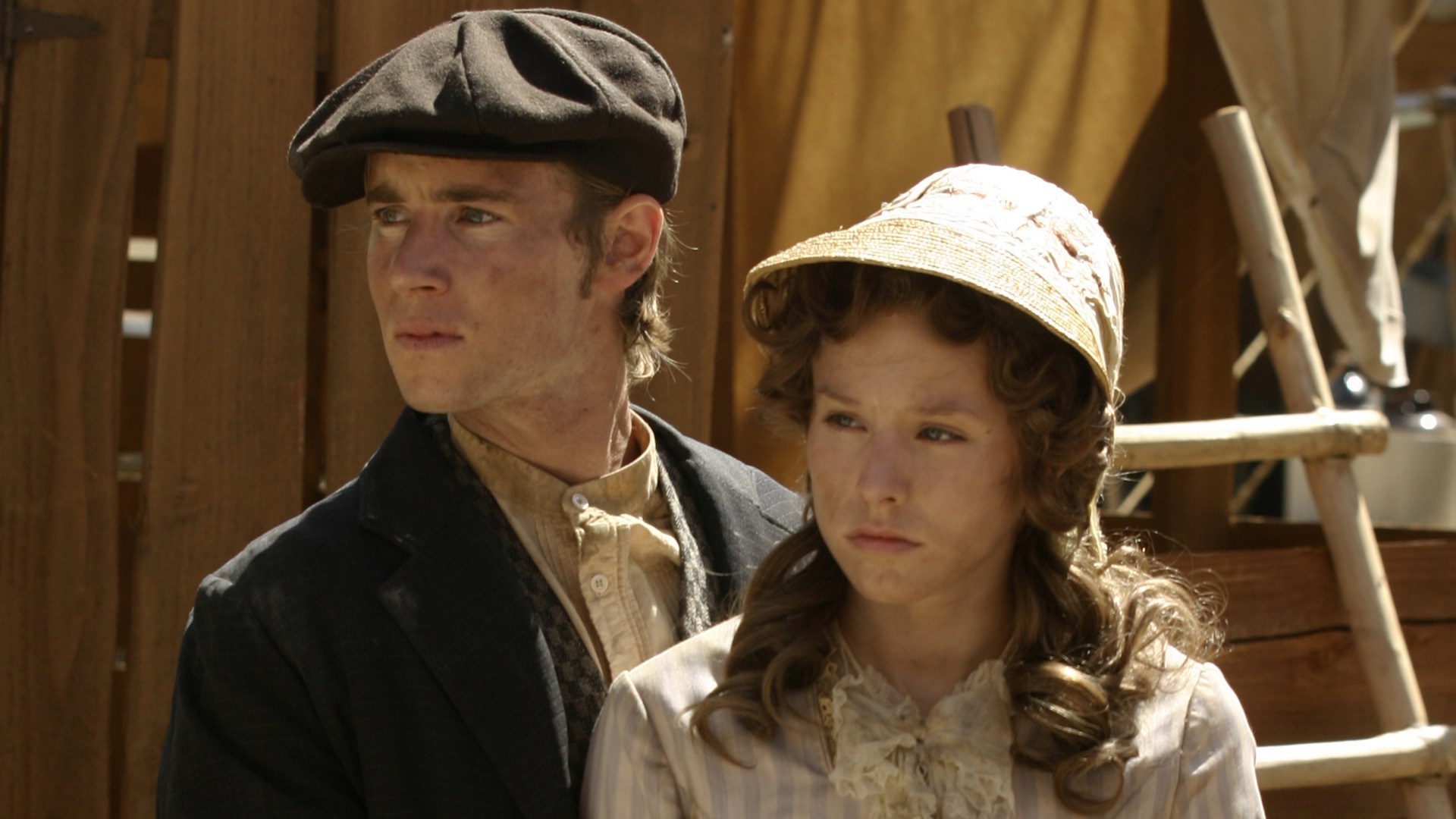
The Apprehension and Punishment of Confidence Artists Flora and Miles Anderson
(Perpetrators: Cy Tolliver)
These two teenagers saw a relatively short arc on Deadwood, but their stories packed a wallop. Flora and Miles found employment at the Bella Union and the Gem, respectively, and began looking for angles to play for a quick score before fleeing the town. Flora underestimates the dangers of the Bella Union, though, or overestimates her own powers there. When the teens are apprehended, Cy Tolliver mercilessly beats them to death with his own hands in front of horrified onlookers. It’s one of the most vicious deaths in a series full of vicious deaths, and it sets Tolliver apart from Swearingen as a man with real evil in his heart.

The Attempted Bribery of General Crook
(Perpetrators: Cy Tolliver Again)
Federal military forces briefly pass through Deadwood after a “victory” over nearby Indians and agree to put on a parade for civic morale / legitimacy. In hosting the troop’s commander, General Croof, Cy Tolliver comes up with the idea of bribing the general to leave some forces behind in camp. Those forces would, presumably, do Tolliver’s bidding in provoking and quelling various pieces of unrest, but Crook, the high-minded military man and the rare frontier official not, apparently, vulnerable to bribing, rebuffs Tolliver and decides to leave camp immediately. The General only waits long enough to haul Alma Garrett’s no-good confidence man of a father out of town strung up on the back of a horse after Seth Bullock has beat him within an inch of his life. The bribery was a bold power play from Tolliver, one that failed like so many other plays.
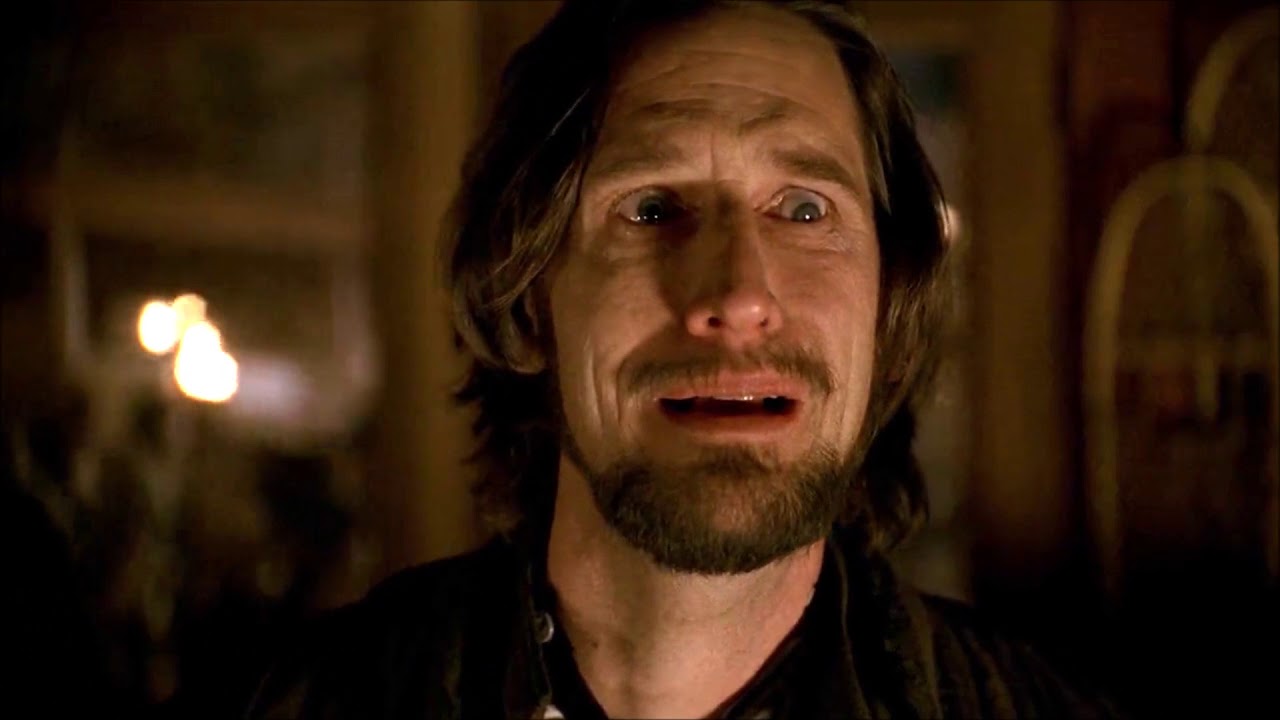
The Mercy Killing of Reverend Smith
(Perpetrators: God, Mortality, The Great Unknown, Al Swearingen)
Only technically a crime, the killing of Reverend Smith is one of the most poignant, heart-breaking moments in the series. Smith was the camp’s self-appointed spiritual leader and as gentle a soul as ever passed through Deadwood. He was also, in the parlance of the day, touched, suffering from eplipetic fits that he believed were the works of God, and which ultimately pushed him into a painful state that was neither in this world or the next. Smith’s suffering is unbearable, and the town’s Doc urges Al Swearingen to help do something about it. Al’s own brother suffered from a similar condition, and the reverend’s plight clearly touches him as little else can. Finally, he welcomes the reverend into the Gem, where the music from the player piano has been a balm to the suffering man, and set him in one of the downstairs bedrooms. While Dorrity watches, Al finally smothers the reverend, providing some comfort in the man’s final minutes and giving him the release of death as a final act of brotherly love.
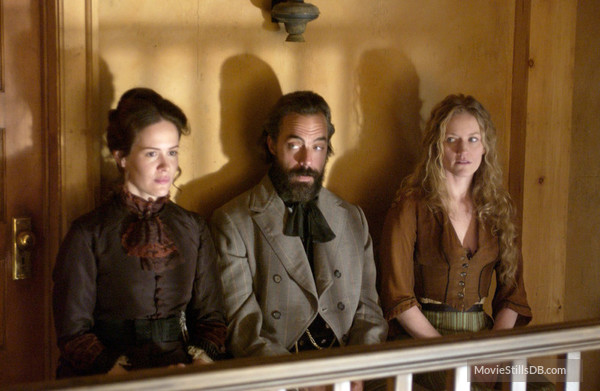
The Infiltration of Alma Garrett’s Employ by the Pinkerton Agent by Sarah Isringhausen
(Perpetrators: The Damn Pinkertons and Various Co-opted Agents)
This one’s a crime of interest mostly as a sign of what’s to come in Deadwood, validation for Al Swearingen’s concerns about the original crimes against Brom Garret and what they might portend: the dreaded Pinkertons and their arrival in Deadwood. Isringhausen seems to be the fairly uptight tutor to Alma Garret’s ward, Sofia, but eventually reveals herself as a steely Pinkerton agent hired by Brom Garret’s family to investigate his death and to frame his widow for the murder (in order to take possession of her gold claims). Isringhausen’s subterfuge is a good reminder of the undercover methods of the original detective agency, and also of how easily identities were assumed and shed in the old west. You couldn’t trust a soul you didn’t know, and you didn’t know a soul.
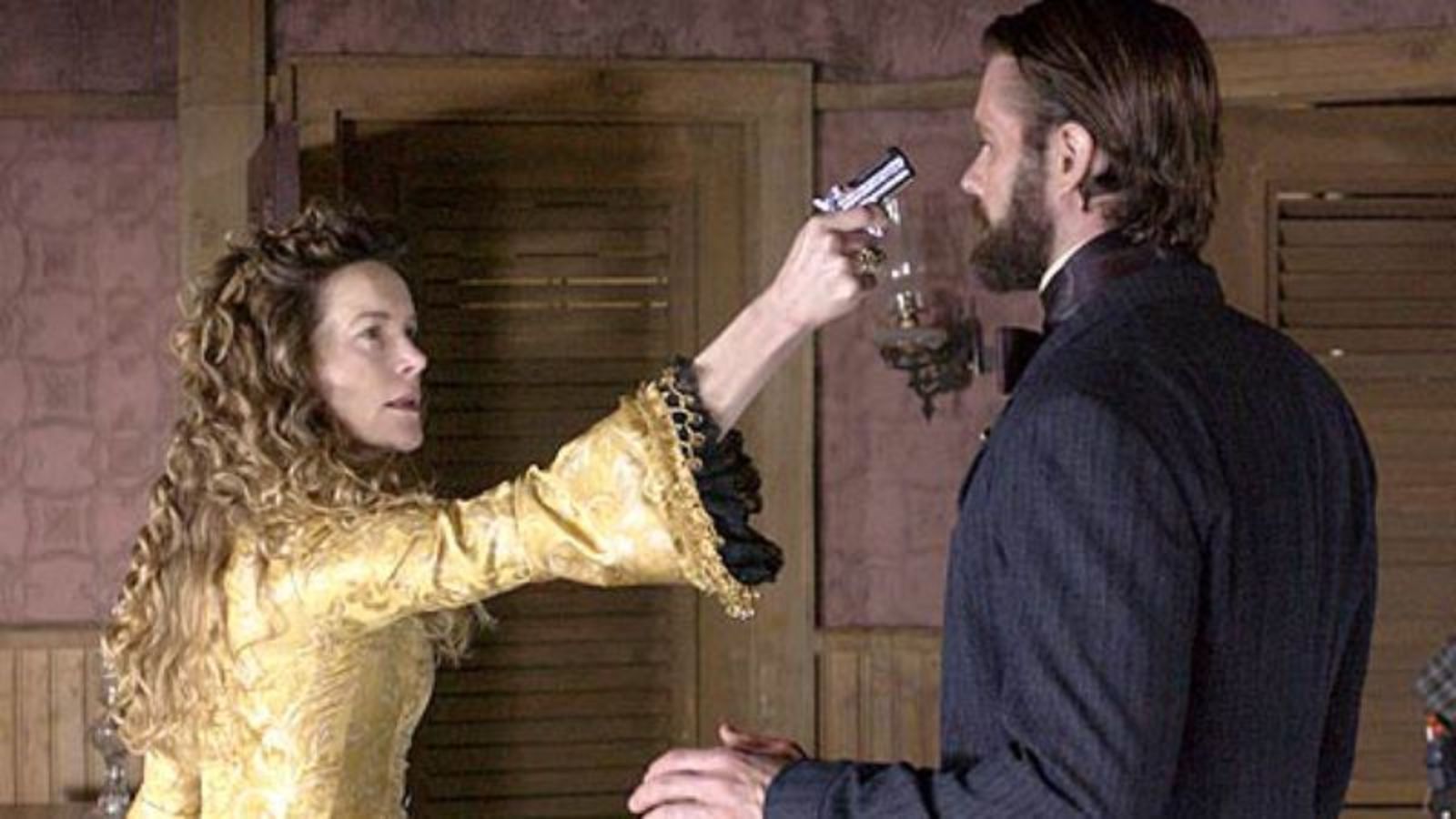
The Murder of Carrie, Doris, and Maddie at the Chez Amis by Francis Wolcott
(Perpetrators: Francis Wolcott and His Enabler George Hearst)
Francis Wolcott is one of Deadwood’s eeriest, most patently evil figures. He’s the advance man for George Hearst, and therefore represents the very real and looming prospect of the industrial forces that will soon descend on what was once a fairly sleepy prospecting camp. He’s also a sadistic sociopath who’s brokered a deal in advance of his arrival for a particular prostitute who’s been dangled in front of him by a procuress who believes he means to eventually kill the girl in the midst of some unspeakable act of sexual violence. The Chez Amis is already a vulnerable place. With disgruntled investors and a rocky start, Joanie Stubbs’s spinoff brothel aims at bringing a touch of class to Deadwood, but it’s that same sense of refinement that seems to make it so precarious. When word leaks out about Wolcott’s sexual fantasies and intentions, Cy Tolliver makes the first overtures toward blackmail, and Wolcott subsequently murders two of the sex workers at the Chez Amis, Carrie and Doris. The procuress, Maddie, applies her own pressure and is killed by Wolcott. Cy Tolliver, who’s been in league with Wolcott and Hearst, cleans up the killings and thereby gains an upper hand on the killer, who’s eventually exposed to his employer, fired, and decides to hang himself in Deadwood. Aside from Hearst himself, there may no more terrifying character in the series run.
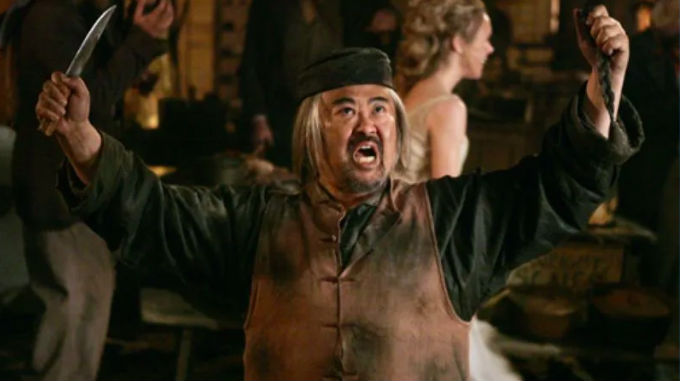
The Mortal Ending of Mr. Lee of San Francisco by Mr. Wu of Deadwood
(Perpetrators: History, Industry, Wu)
The rivalry between Mr. Wu, the leader/kingpin of Deadwood’s Chinatown community, and the “San Francisco cocksucker” Lee is quietly one of the most intriguing bellwethers of the entire series. Lee is running opium and trafficking women into the Deadwood camp, the kinds of criminal activities (especially the former) once solely under the purview of Mr. Wu, who also managed an alliance with Al Swearingen, the two of them representing the camp’s old guard. Lee is in league with George Hearst and has run similar vice operations in other Hearst camps, it seems, so his battles with Wu ultimately becomes a kind of proxy war for the larger forces of the camp. Ultimately, Swearingen brokers a deal whereby Wu, not Lee, will provide Chinese workers for the mines, which means Wu has the green-light to dispatch his rival, which he does with a knife slit across the throat. The murder is a notable victory for the camp’s original settlers.








